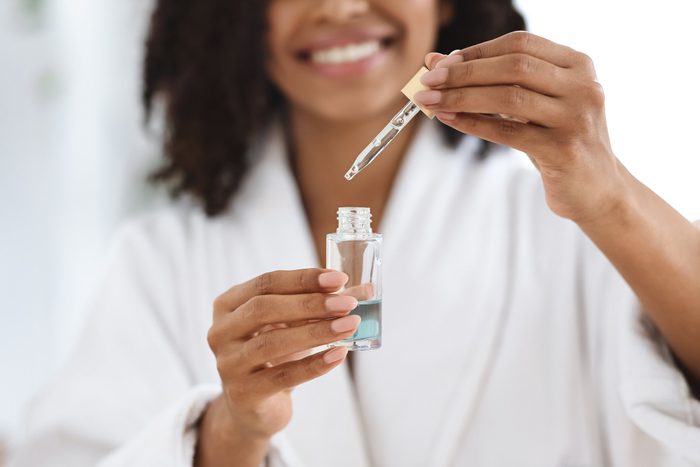
Best Night Creams in Canada
Have you seen those memes on Instagram with a shoe popular in the late ’90s or ’00s paired with a caption that says, “If you wore these, it’s probably time for a night cream?” Well, it’s true.
It’s also true that a night cream is a good bet for most of us, starting in our mid to late 20s as part of our anti-aging skin regimen. A little extra care overnight as our skin repairs is actually a good thing for our skin health.
Here’s everything you need to know about night creams, whether you need one, how to add it to your nighttime skin care routine for maximum results, and six great ones to try.
(Related: These Products Pull an All-Nighter to Repair Skin While You Snooze)

How to build a nighttime skin care routine
It’s all about choosing barrier repair in the evening when creating your regimen, says Mona Gohara, MD, a board-certified dermatologist in Connecticut and an associate clinical professor in the Department of Dermatology at Yale School of Medicine in New Haven, Connecticut.
Whether you’re hoping to firm sagging skin or address fine lines and wrinkles, look for antioxidants, hyaluronic acid, ceramides, lipids, peptides, and retinoids in your night cream formula.
(Related: Everything You Need to Know About Acids for Skin Care)
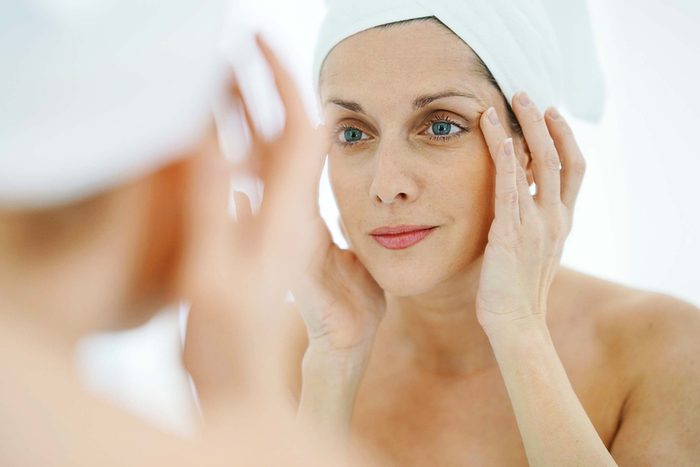
Add moisture
As we age, our skin loses moisture. Plus, many anti-aging skin care products can be drying. That’s why many people end up with dry skin as they get older. And dry skin can make fine lines and wrinkles easier to see. To reduce signs of aging, then, you need to hydrate.
“To enhance moisture in the skin, you want to opt for a night cream with hyaluronic acid, ceramides, and lipids,” Dr. Gohara says. Her tip is to apply your formulas to skin that’s damp—and don’t forget to be consistent with your skin care routine daily and nightly.
(Related: A Decade-by-Decade Guide to Changing Up Your Skin Care Routine)
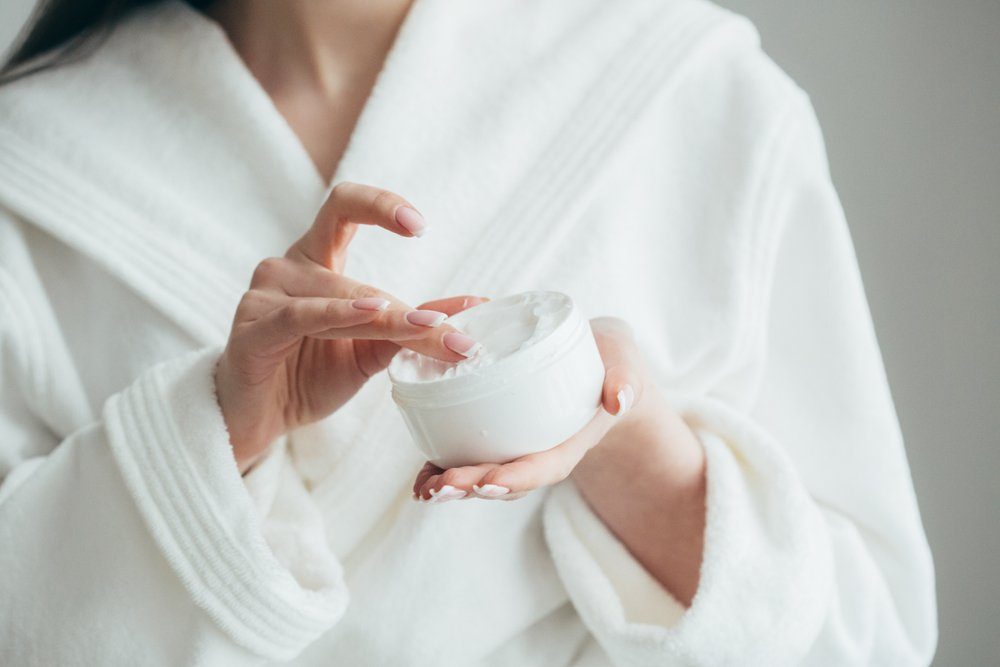
Use anti-aging ingredients
For reducing signs of aging, look to retinol. It’s dermatologists’ top choice for anti-aging, and for good reason. It’s backed by years of science.
Other anti-aging ingredients to look for include peptides. There’s not a ton of research on them, but they may treat aging skin and help stimulate collagen production.
(Related: This Nutrition Plan Can Help Slow Down Aging)
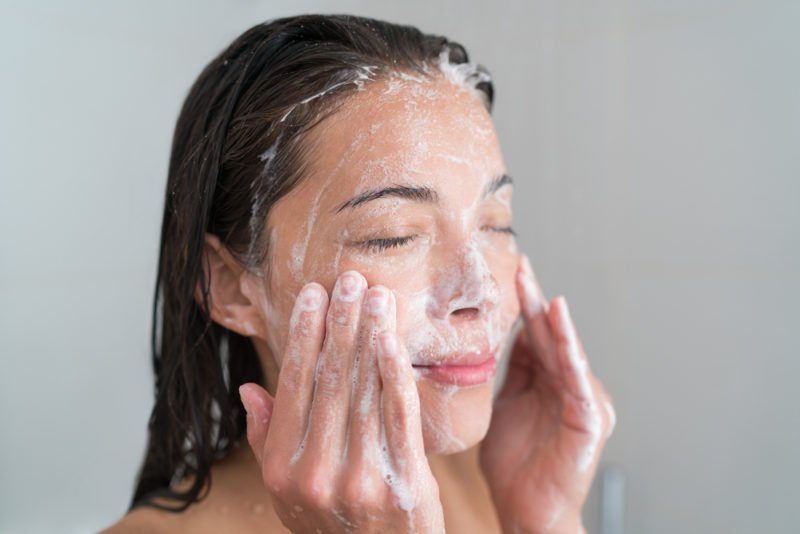
Know when to use your products
So you know the anti-aging ingredients to look for, but when do you use them all? A quick cheat sheet, per Dr. Gohara: In the morning, use your protective actives, including SPF and antioxidants like vitamin C. At night, use your regenerative actives, like retinoids and peptides.
“In the summer, I double up on antioxidants,” she says. “In the winter I double on my retinoids.”
(Related: Applying Your Skin Care Products: The Right—and Wrong—Way)

Address dark spots
If dark spots are a concern, vitamin C can help brighten skin by indirectly preventing melanogenesis (pigmenting), says Blair Murphy-Rose, MD, a New York City-based dermatologist and clinical assistant professor at NY Presbyterian Hospital–Weill Cornell Medical Center. It’s an antioxidant that fights free radical damage from the environment to prevent the development of dark spots and other signs of skin aging.
“Look for products containing pure L-ascorbic acid and that are packaged in solar-resistant [think dark or opaque] containers to help maintain the stability of the vitamin C,” she adds. That’s not the only product that can target hyperpigmentation.
“Retinol and alpha-hydroxy acids (AHAs) can help to lighten dark spots by increasing exfoliation and skin cell turnover, but they also increase sun sensitivity, so excellent sun protection cannot be overemphasized,” says Dr. Murphy-Rose. Using these two ingredients at night is a good bet.
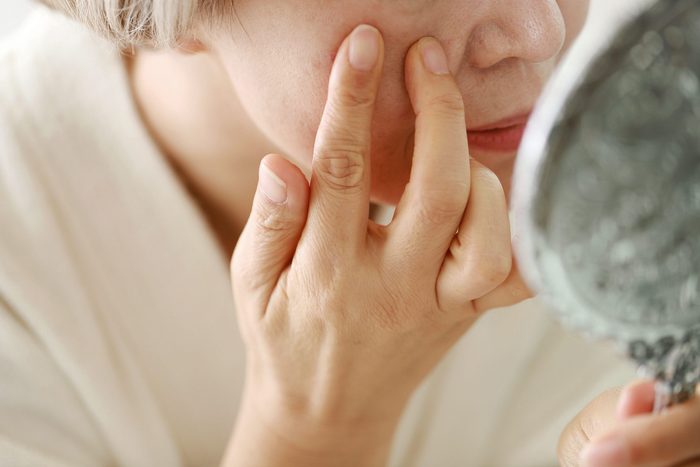
Avoid irritation
Stick to a single active ingredient if you’re focusing on anti-aging to make sure that you are experiencing its full benefit, says Joshua Zeichner, MD, director of cosmetic and clinical research and assistant professor of dermatology at Mount Sinai in New York City.
That means it’s better to use a product with one main ingredient than a cream that packs in a laundry list of ingredients. Dr. Zeichner’s go-to active ingredient is a retinol. “I recommend combining your retinoid with a moisturizer if your skin gets irritated,” he says.
Apply moisturizer, then a layer of your retinoid of choice, and if you’re really dry, following that up with another layer of moisturizer on top.
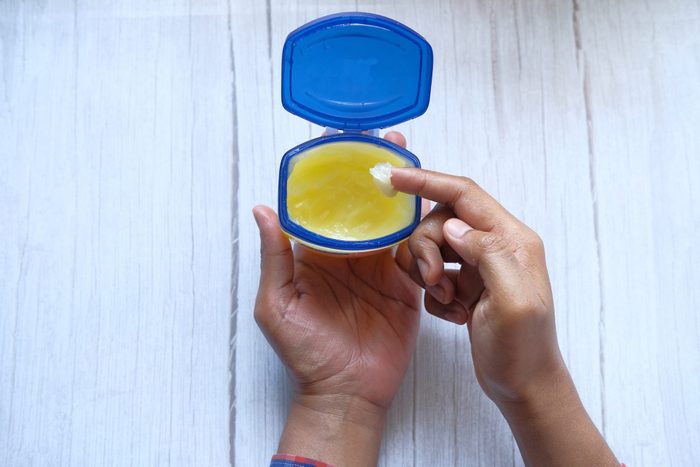
Slugging and anti-aging ingredients
Have you heard of slugging? This term refers to applying a layer of Vaseline on your skin at night, making you look shiny like a slug, hence the name.
If you want to slug without other active ingredients applied underneath, go for it. But Dr. Zeichner warns that if you are using Vaseline on top of anti-aging ingredients, it could be potentially irritating. “This can lead to more harm than good,” he explains. “The Vaseline forms an occlusive layer [over] retinol or hydroxy acids and enhances penetration. It can cause too much of a good effect, or make it too effective, leading to irritation.”
In other words, these products are designed to be sort of breathable, and layering an occlusive, like Vaseline, may turbocharge them a bit too much.
Below, the best anti-aging creams.
(Related: The Truth About Petrolatum: Does it Belong in Your Skin Care Products?)
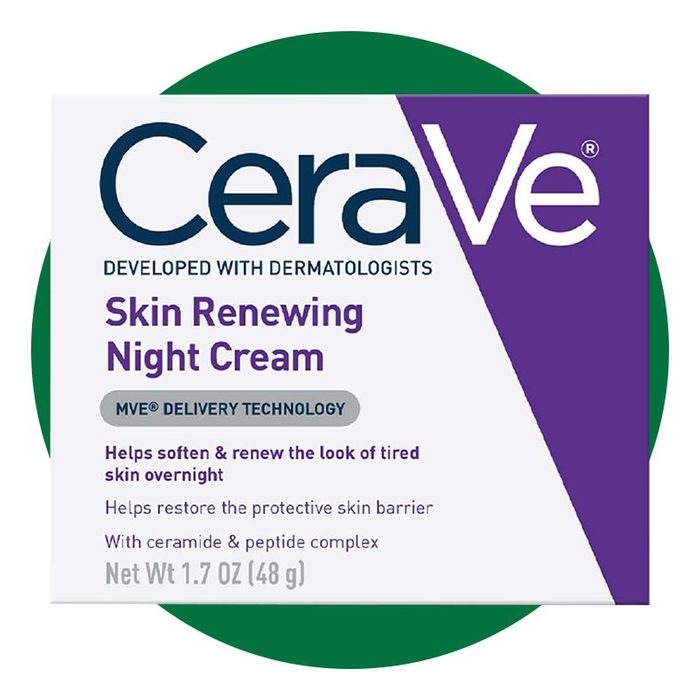
Cerave Skin Renewing Night Cream
$30, well.ca
This night cream offers a great value with fantastic ingredients. The nongreasy formula is intensely moisturizing—a boon for aging skin that tends to be more dry—and continually releases moisturizing ingredients throughout the night. It is designed peptides and ceramides to restore the skin barrier and reduce fine lines.
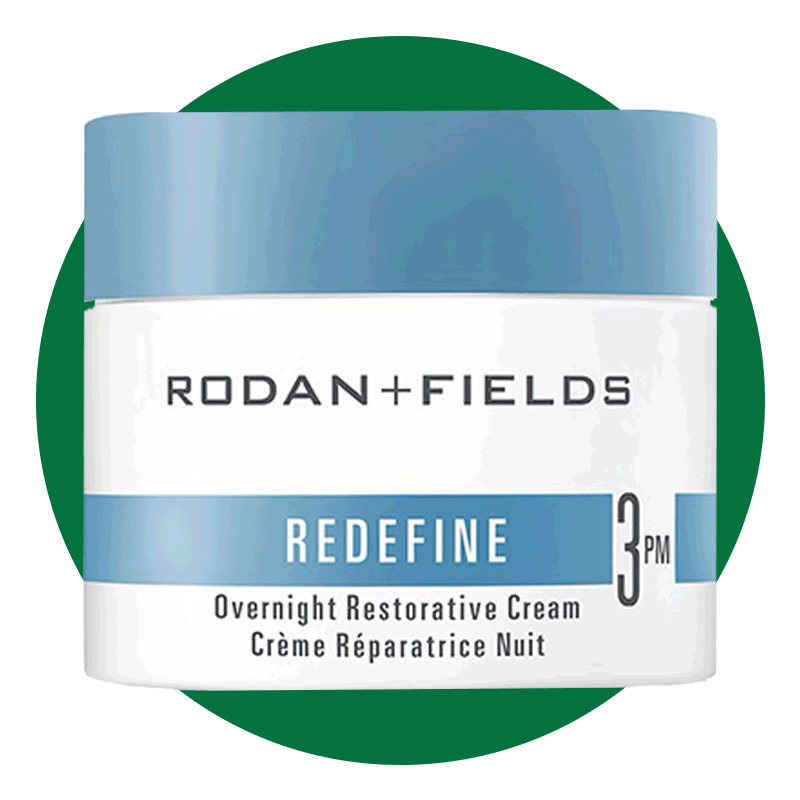
Rodan + Fields Redfine Overnight Restorative Cream
$104, rodanandfields.ca
This well-formulated deep moisturizer contains bakuchiol, nature’s alternative to retinol. It’s an ingredient better tolerated by dry or sensitive skin. Dr. Zeichner likes this cream, which aims to reduce the appearance of fine lines and wrinkles.
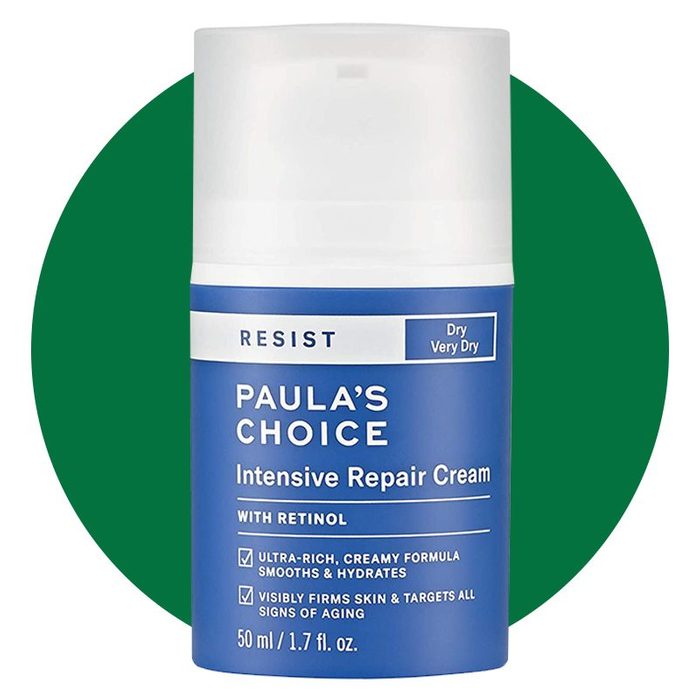
Paula’s Choice Intensive Repair Cream With Retinol
USD$33, paulaschoice.com
Another retinol option, this rich cream boasts a rich texture (and hylauronic acid) to hydrate dry skin on the face, neck, and chest—places that are first to show signs of aging. The retinol is an anti-aging powerhouse, as are the antioxidant ingredients. “Retinol is a gold-standard in anti-aging skin care that has been proven to boost collagen production, improving and preventing fine lines and wrinkles and firming the skin,” says Dr. Murphy-Rose.
(Related: What to Know Before Booking a Laser Treatment for Your Face)
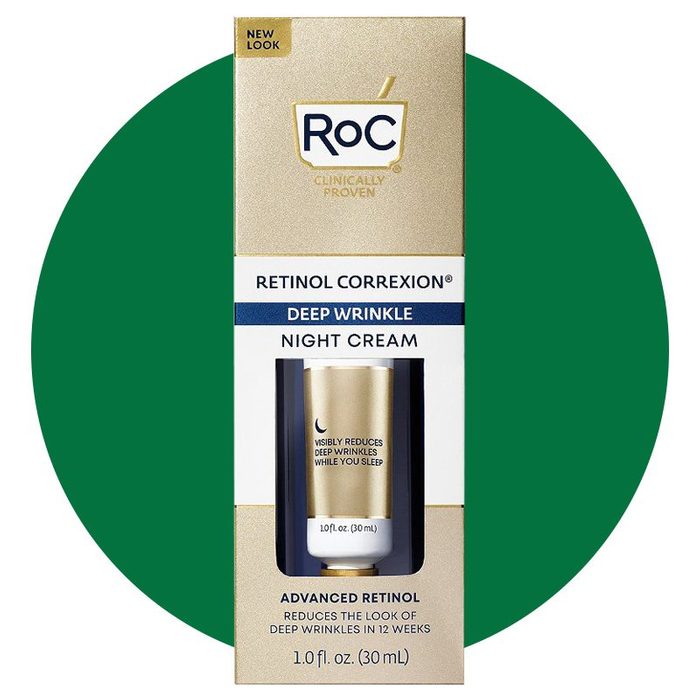
RoC Retinol Correxion Deep Wrinkle Night Cream
$40, shoppersdrugmart.ca
If deeper-set fine lines and wrinkles are your main target, this night cream with retinol will help. “Retinol speeds up cell turnover to exfoliate older duller skin cells and keep newer skin cells at the surface, smoothing skin texture and bringing about a brighter complexion,” says Dr. Murphy-Rose. Give this night cream 12 weeks to do its thing. To avoid dryness and irritation, start by using it one or two nights a week, building up to three or four nights a week.
(Related: 8 Signs Your Skin Products Are Secretly Damaging Your Face)
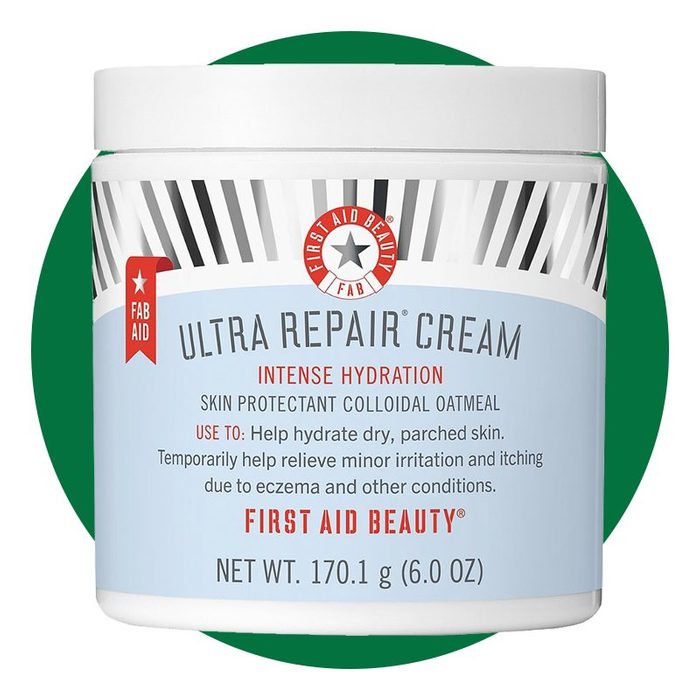
First Aid Beauty Ultra Repair Cream
$48, sephora.com
This best-selling cream works well for even the most sensitive skin and can be used during the day or at night. It’s a favorite of Dr. Gohara. “Night is for the skin to restore and repair,” she says. “That is when the skin cell factory is open and regenerating.” She adds that this cream is perfect solo or as a layer on top of other active ingredients. She recommends applying it over a retinol, prescription tretinoin cream, or a glycolic or salicylic acid toner for best results. It leaves skin feeling smooth, hydrated, and comfortable.
(Related: The Benefits of a Stripped Down Skin-Care Routine)
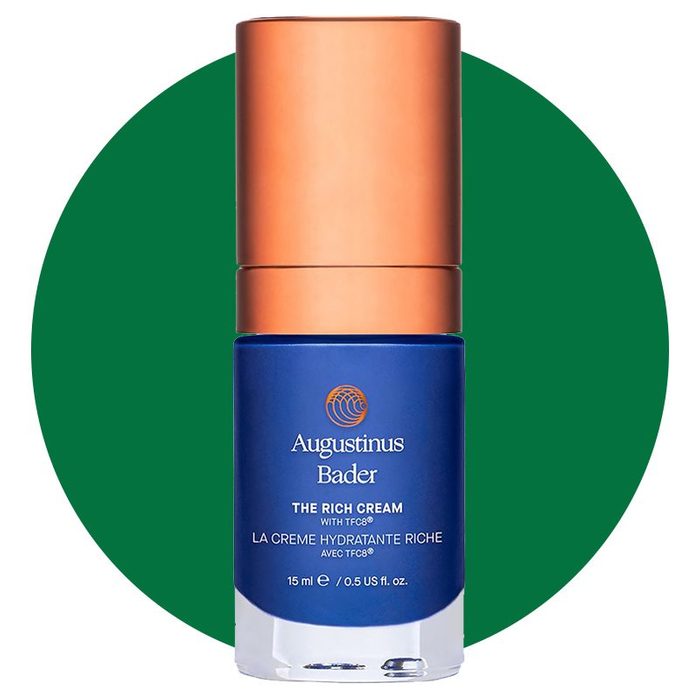
Augustinus Bader The Rich Cream
$350, sephora.com
An incredible formula that’s wildly popular with beauty editors globally, this recently upgraded rich moisturizer is now vegan and clinically shown to reduce the appearance of fine lines, wrinkles, and hyperpigmentation. With hylauronic acid—a dermatologist-recommended ingredient—it hydrates even the most Sahara-dry, sensitive skin. The downside: it’s price.
Next: 8 Simple Tricks to Better Protect Yourself From the Sun
